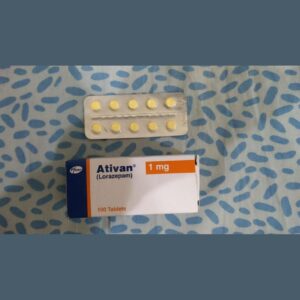Insomnia
Insomnia is a sleep disorder that causes difficulty falling or staying asleep, resulting in daytime impairments. According to the American Academy of Sleep Medicine, it can affect people of any age. Treatment for insomnia often involves behavioral changes learned in behavioral therapy, but medication can also be used to manage the symptoms, especially for short-term insomnia that has been triggered by an emotional or physical event [7].
Various types of prescription medications are used to treat insomnia. They include benzodiazepines, non-benzodiazepine sedative hypnotics or “z-drugs,” melatonin receptor agonists, orexin receptor antagonists, and low-dose antidepressants [5]. Some benzodiazepines, such as Lorazepam, Clonazepam, and Alprazolam, that are approved by the FDA for the treatment of anxiety are sometimes used for insomnia as well [4].
Benzodiazepines work by slowing down the central nervous system, making the user drowsy. Some older antidepressants are also prescribed for insomnia as they can change brain chemicals to regulate sleep and have a sedative effect [3].
Medications for insomnia should be used under the supervision of a clinician and are most appropriate for short-term insomnia (i.e., several days or a few weeks) [2]. Patients are advised to talk to their doctor about the benefits and side effects of insomnia medicines, as some prescription drugs used to treat other health conditions can also increase the risk of insomnia and cause side effects such as anxiety [6].
Showing 1–9 of 10 results









